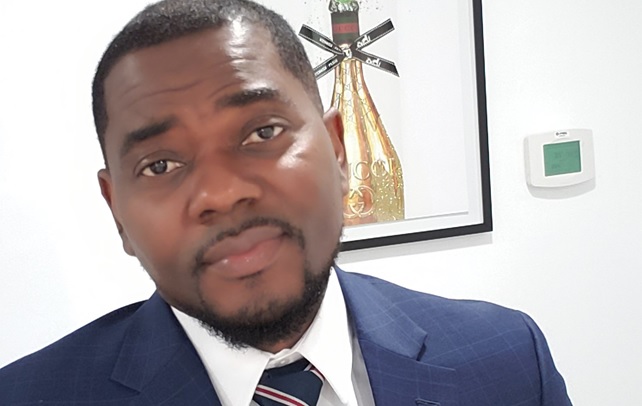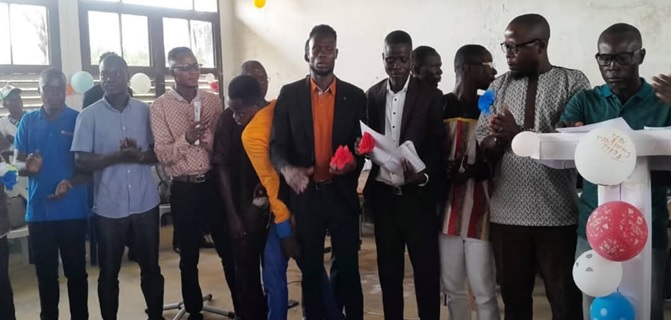A public procurement expert based in the United States has applauded President Joseph Nyuma Boakai’s administration for launching Liberia’s Electronic Government Procurement (e-GP) System. Mr. Alfred Sellu, in a statement issued on Monday, February 10, 2025, described the initiative as a transformative shift in public procurement that reinforces transparency, efficiency, and accountability.
Mr. Sellu, who previously worked for the Liberia Revenue Authority (LRA) before relocating to the United States, emphasized that this development marks a major step toward eliminating corruption in government procurement processes. He highlighted his role in shaping the LRA’s procurement system, noting that he was part of the institution’s formation team. Under the leadership of Madam Elfrieda Stewart Tamba, the first Commissioner General of the LRA, Sellu developed procurement policies, standard operating procedures, and compliance frameworks that aligned with the Public Procurement and Concessions Commission (PPCC) Act.
With extensive credentials, including being a Certified Public Procurement Officer (CPPO) and a Certified Federal Contract Manager (CFCM), Sellu has been a vocal advocate for modernization in public procurement. He holds certifications from the US-based National Institute of Governmental Purchasing (NIGP) and the National Contract Management Association (NCMA). Additionally, he earned a master’s degree from Wilmington University in the United States.
In his statement, Sellu emphasized that replacing the traditional manual procurement system with an online platform will streamline government contracting, reduce inefficiencies, and promote fair competition. He noted that in many cases, procurement officers face political pressure from higher-ups seeking to manipulate contracts. However, with the e-GP System providing real-time access to procurement data, public scrutiny will serve as a deterrent to corrupt practices.
He outlined key benefits of the e-GP System, including increased transparency, efficiency, cost reduction, and fair competition. He explained that automation will minimize administrative delays, reduce paperwork, and prevent human errors. Additionally, by allowing online submission and tracking of bids, small and medium enterprises (SMEs) will have greater opportunities to compete for government contracts. The integration of the system with financial platforms, he said, will also ensure fiscal discipline, compliance, and real-time budget monitoring.
Despite these advantages, Sellu acknowledged that every system has its challenges. He outlined several potential risks associated with the implementation of the e-GP System, such as limited digital infrastructure, cybersecurity threats, user resistance, and system limitations. He pointed out that inadequate internet access and electricity in some parts of Liberia may slow down widespread adoption. Cybersecurity risks, including data breaches and hacking threats, could also compromise the integrity of the procurement system if not properly managed.
Another major concern he raised is user resistance and capacity gaps. Many procurement professionals and suppliers may struggle with transitioning from manual to digital processes due to limited ICT skills. Furthermore, stakeholders accustomed to traditional procurement methods may resist change, potentially hindering the system’s full implementation. He also noted that the initial rollout lacks critical features such as electronic contract signing and automated supplier performance evaluation.
To ensure the successful implementation of the e-GP System, Sellu recommended that the government take several key steps. He urged authorities to prioritize infrastructure development by investing in stable electricity and internet access, which are critical for the smooth operation of the system. He also emphasized the need for extensive capacity-building programs to train procurement practitioners, public officials, suppliers, and small businesses on how to use the system effectively.
Sellu further advised the government to strengthen the legal framework to ensure that e-procurement practices are fully supported by law. He cited potential legal challenges such as disputes over late bid submissions due to technical failures, emphasizing that clear policies must be in place to address such issues. He also called for the expansion of system functionalities by incorporating features like e-signing of contracts, supplier tracking, and automated alerts to enhance efficiency.
Additionally, he stressed the importance of cybersecurity measures to protect sensitive procurement data. He recommended that the government implement strong firewalls, encryption protocols, and regular system audits to prevent data breaches and build public trust in the system. Without these protections, he warned, the integrity of the e-GP System could be compromised, undermining its intended purpose.
Sellu expressed confidence that with the right investments and strategic implementation, the e-GP System could significantly transform Liberia’s procurement landscape. He noted that many countries have successfully implemented similar systems, leading to increased government savings, reduced corruption, and improved service delivery. He cited Ghana, Rwanda, and Kenya as examples of African nations that have leveraged e-procurement to enhance governance.
He also emphasized that modernizing Liberia’s procurement system is essential for attracting international investors and boosting economic growth. Investors, he said, are more likely to engage with a government that operates transparently and efficiently. By ensuring that contracts are awarded fairly and based on merit, the system could also foster the growth of local businesses and create more job opportunities for Liberians.
Sellu concluded by urging the government to provide the necessary resources and support to the professional team at the PPCC tasked with managing the e-GP System. He warned that failure to allocate sufficient funding for training, system maintenance, and infrastructure development could hinder the system’s success. He emphasized that if the government does not fully support the initiative, it risks becoming another failed project that does not deliver its intended benefits.
His commendation of the Boakai administration comes in the wake of the official launch of the e-GP System on Thursday, February 6, 2025. The launch ceremony, held at the EJS Ministerial Complex in Oldest Congo Town, was attended by high-ranking government officials, members of the National Legislature, financial institutions, international partners, and private sector representatives.
The e-GP System is widely regarded as a milestone in Liberia’s efforts to enhance transparency, efficiency, and accountability in public procurement. Many experts believe that if properly implemented, it could position Liberia among the leading countries in Africa that have successfully embraced digital procurement reforms.
Sellu’s endorsement of the initiative reinforces growing optimism about the system’s potential. However, as he and other experts have pointed out, the success of the e-GP System will depend on how well the government addresses existing challenges and ensures its sustainability.







